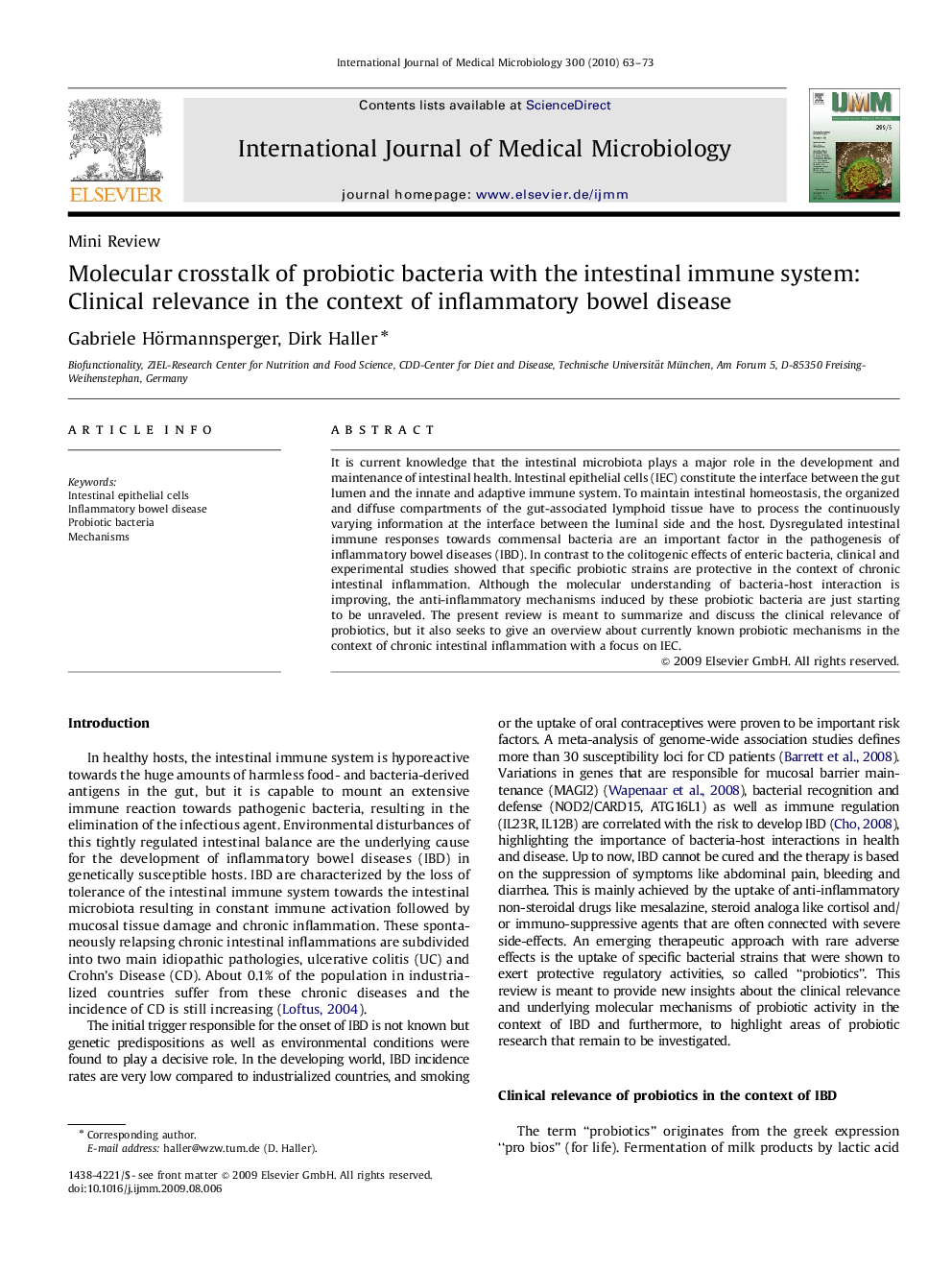| Article ID | Journal | Published Year | Pages | File Type |
|---|---|---|---|---|
| 2054500 | International Journal of Medical Microbiology | 2010 | 11 Pages |
It is current knowledge that the intestinal microbiota plays a major role in the development and maintenance of intestinal health. Intestinal epithelial cells (IEC) constitute the interface between the gut lumen and the innate and adaptive immune system. To maintain intestinal homeostasis, the organized and diffuse compartments of the gut-associated lymphoid tissue have to process the continuously varying information at the interface between the luminal side and the host. Dysregulated intestinal immune responses towards commensal bacteria are an important factor in the pathogenesis of inflammatory bowel diseases (IBD). In contrast to the colitogenic effects of enteric bacteria, clinical and experimental studies showed that specific probiotic strains are protective in the context of chronic intestinal inflammation. Although the molecular understanding of bacteria-host interaction is improving, the anti-inflammatory mechanisms induced by these probiotic bacteria are just starting to be unraveled. The present review is meant to summarize and discuss the clinical relevance of probiotics, but it also seeks to give an overview about currently known probiotic mechanisms in the context of chronic intestinal inflammation with a focus on IEC.
